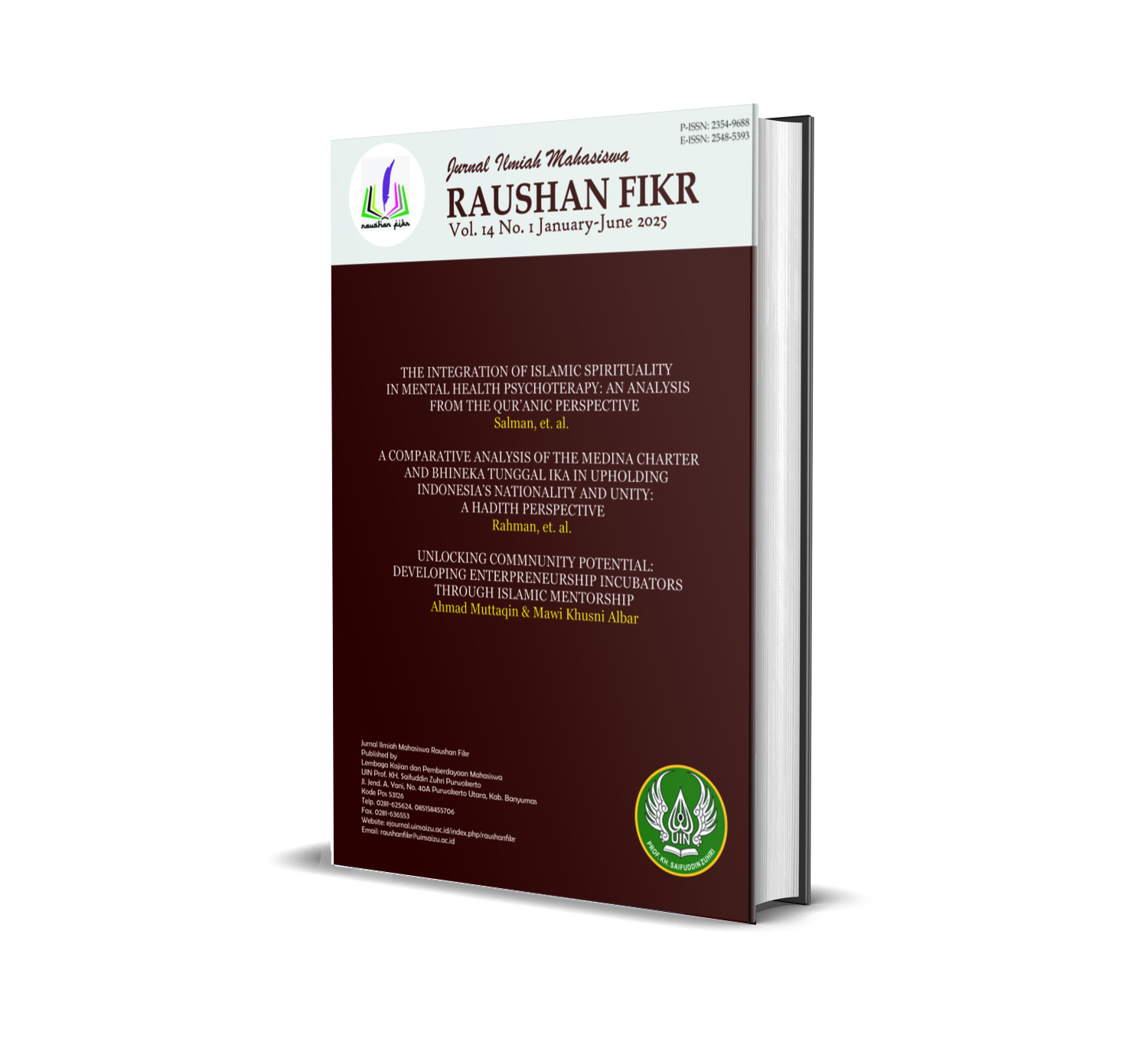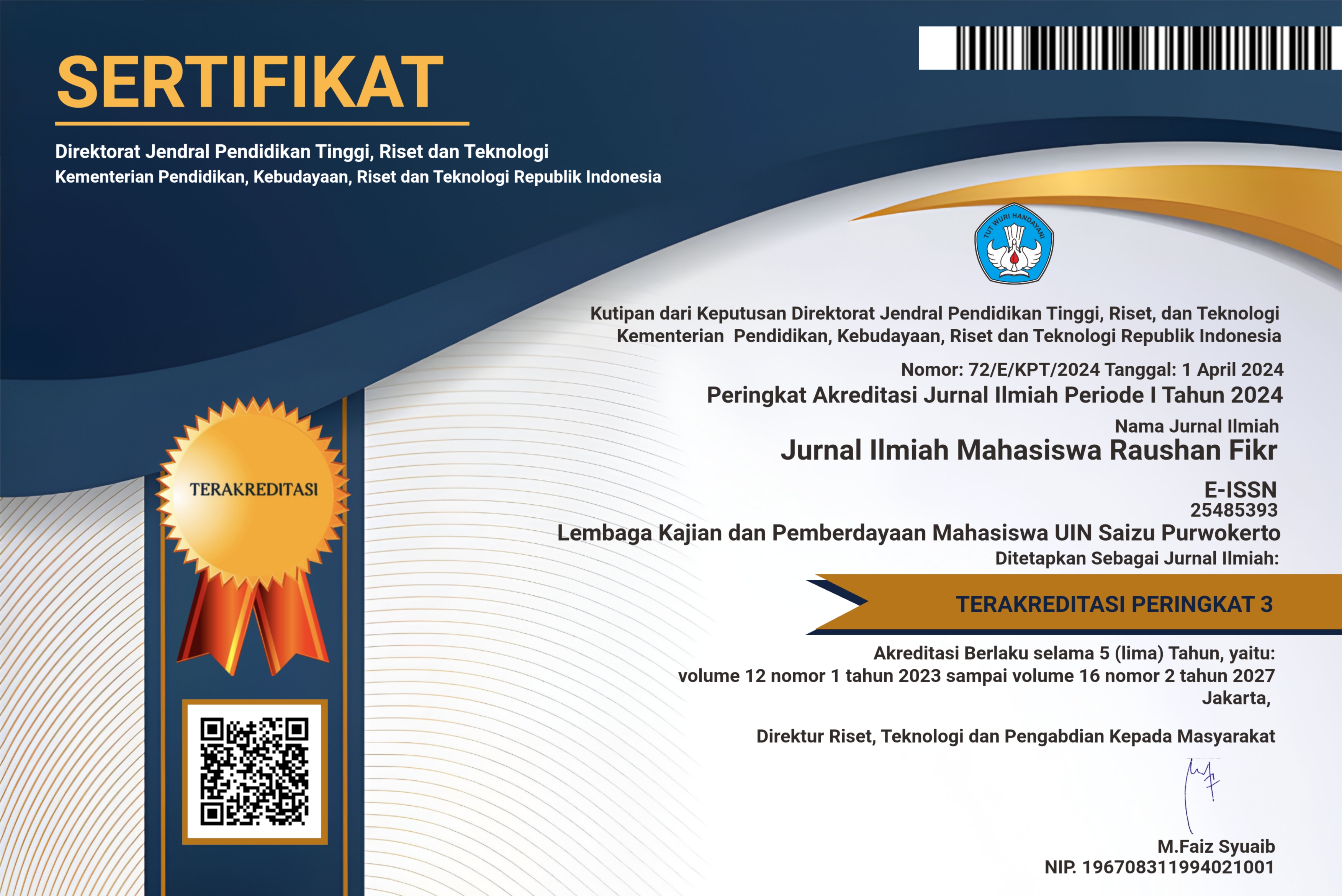Beyond Charity: How Zakat Governance in Jember Transforms Social Relations Among Mustahiq
DOI:
https://doi.org/10.24090/jimrf.v14i1.12379Keywords:
Zakat Governance, Poverty Alleviation, Social Welfare, Mustahiq Empowerment, Institutional ComparisonAbstract
Poverty remains a significant challenge to civilization, particularly within Muslim communities. As a fundamental pillar of Islam, zakat serves a crucial role in alleviating poverty and promoting social welfare. This study analyzes and compares zakat governance in two leading institutions in Jember: Amil Zakat Al-Baitul Amien and the Nurul Hayat Foundation, with a specific focus on empowering mustahiq (zakat recipients). Using a qualitative, descriptive approach, the research explores zakat governance practices based on data gathered through interviews with institutional managers, supported by insights from zakat practitioners and academics. The findings indicate that both institutions generally uphold the principles of good zakat governance and operate with professional standards. However, full optimization remains a challenge—particularly for Al-Baitul Amien. Both organizations have adopted digital technologies to improve zakat collection and service delivery, with the Nurul Hayat Foundation demonstrating greater technological integration. Despite its stronger performance, Nurul Hayat still faces areas for improvement, especially in achieving full accountability, transparency, and operational efficiency. Strengthening governance frameworks in both institutions is essential to unlock zakat’s full potential in empowering mustahiq and supporting sustainable socio-economic developmentDownloads
References
AbdulKareem, I. A., Olaide, K. M., & Isiaka, O. S. (2021). Curbing unemployment and brain drain among Nigerian youths through Islamic financing instruments. Journal of Islamic Economic and Business Research, 1(1), 59–71.
Afrizal. (2014). Metode Penelitian Kualitatif: Sebuah Upaya Mendukung Penggunaan Penelitian Kualitatif Dalam Berbagai Disiplin Ilmu. Raja Grafindo Persada.
Akhmad, A. G., & Fachruddin, P. A. (2008). DISAIN RUMAH TINGGAL KONSTRUKSI “KNOCK DOWN.” Jurnal SMARTek, 6(18–28).
Al-Amin, A.-A., Alfia, N., Subeno, H., Andespa, W., & Sabri, S. (2023). The Effect of Claim Service Quality on the Decision to Buy Sharia Insurance Products (Case study on Sharia Insurance in Indonesia). GIC Proceeding, 1, 396–407.
Al Fajar, M. R., & Jannah, M. (2021). Implementasi Undang-Undang Zakat No. 23 Tahun 2011 Tentang Pengelolaan Zakat (Studi Kasus LAZISMU Kota Bima). J-ESA (Jurnal Ekonomi Syariah), 4(2), 127–140.
Alfin, A., & others. (2019). Influence Of Principles And Independence Accountability Preferences On Muzakki Pay Zakat In Amil Institutions Zakat Izi PKPUKota Bukittinggi. EKONOMIKA SYARIAH: Journal of Economic Studies, 3(1), 85–95.
Amin, A.-A., & Taufiq, M. M. (2023). Analisis Pengaruh Hifdz Al Maal Terhadap Pengelolaan Harta Pada Pedagang Muslim Pasar Aur Kuning Kota Bukittinggi. JESI (Jurnal Ekonomi Syariah Indonesia), 12(2), 163–169.
Amin, A., Putra, R., Subeno, H., Bashir, H., Andespa, W., & Ridwan, A. (2023). Penerapan dan Urgensi Model Model Cash Waqaf (Studi pada Hasil Jurnal Penelitian di Indonesia). Journal on Education, 5(2), 3095–3107.
Ansori, T. (2018). Pengelolaan Dana Zakat Produktif Untuk Pemberdayaan Mustahik Pada LAZISNU Ponorogo. Muslim Heritage, 3(1), 177. https://doi.org/10.21154/muslimheritage.v3i1.1274
Didin Hafidhuddin. (2002). Zakat Dalam Perekonomian Modern. Gema Insani Pers.
Dwiyanto, B. S., & Jemadi, J. (2014). Wirausaha Kelompok Usaha Budidaya Pembesaran Lele. Jurnal Maksipreneur: Manajemen, Koperasi, Dan Entrepreneurship, 4(1), 4–21.
Fukuyama, F. (1995). Social capital and the global economy. Foreign Aff., 74, 89.
Hafidhuddin, D. (2002). Zakat dalam perekonomian modern. Gema insani.
Hassan, W. Z. W., Jamsari, E. A., Muslim, N., Alias, J., Mohamad, Z., & Ahmad, M. Y. (2018). The dynamics of zakat distribution according to Shafi’i school of law (madhhab) in fatwas of Terengganu state. International Journal of Civil Engineering and Technology, 9(1), 771–783.
Hudaefi, F. A., Beik, I. S., Zaenal, M. H., Choiri, M., Farchatunnisa, H., & Junari, U. L. (2020). How Does Zakat Institution Respond To Fintech? Evidence From Baznas, Indonesia. International Journal of Zakat and Islamic Philanthropy, 2, 2672–7471.
Longman, R. W., Lindbergt, R. E., & Zedd, M. F. (1987). Satellite-mounted robot manipulators—new kinematics and reaction moment compensation. The International Journal of Robotics Research, 6(3), 87–103.
Miranda, S., & Junisar Fircarina. (2020). Pengaruh Zakat, Islamic Corporate Sosial Responsibility dan Penerapan Good Governance Bisnis Syariah Terhadap Reputasi dan Kinerja Bank Umum Syariah Di Indonesia. Jurnal Al-Azhar Indonesia, 1(2), 86.
Nomor, H. I. (2019). Policy Implementation of the Family Hope Program in Empowering the Poor in Bone Bolango Distric.
Osborne, D. (1993). Reinventing government. Public Productivity & Management Review, 349–356.
Prijono, O. S., Pranarka, A. M. W., & others. (1996). Pemberdayaan: Konsep, kebijakan, dan implementasi. (No Title).
Rasyid, M. H. (2003). KH Achmad Mursyidi: ulama, pejuang, dan politisi dari Betawi. Pustaka Darul Hikmah.
SAIFUDIN, F. L. (2021). PENGARUH PROFESIONALISME DAN TRANSPARANSI PENGELOLAAN DANA ZIS TERHADAP LOYALITAS MUZAKKI. UMM Intitional Repository, 14(1), 1–13.
Sujarweni, V. W. (2014). Metode Penelitian: Lengkap, Praktis, dan Mudah Dipahami. Pustaka Baru Press.
Wahyu, A. R. M., & Anwar, W. A. (2020). Management of Zakat at BAZNAS Regency Sidrap During COVID-19’s Pandemic. Jurnal Iqtisaduna, 1(1), 1. https://doi.org/10.24252/iqtisaduna.v1i1.15807
Downloads
Published
How to Cite
Issue
Section
License
Copyright (c) 2025 Nurul Widyawati Islami Rahayu, Fauzan, Khamdan Rifa’i, Ahmad Fathor Rosyid

This work is licensed under a Creative Commons Attribution-NonCommercial-ShareAlike 4.0 International License.
Authors who publish with this journal agree to the following terms:
- Authors retain copyright and grant the journal right of first publication with the work simultaneously licensed under a Creative Commons Attribution-NonCommercial-ShareAlike 4.0 International License that allows others to share the work with an acknowledgement of the work's authorship and initial publication in this journal.
- Authors are able to enter into separate, additional contractual arrangements for the non-exclusive distribution of the journal's published version of the work (e.g., post it to an institutional repository or publish it in a book), with an acknowledgement of its initial publication in this journal.
- Authors are permitted and encouraged to post their work online (e.g., in institutional repositories or on their website) prior to and during the submission process, as it can lead to productive exchanges, as well as earlier and greater citation of published work (See The Effect of Open Access).
















